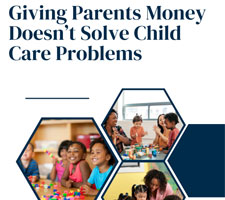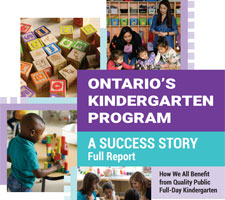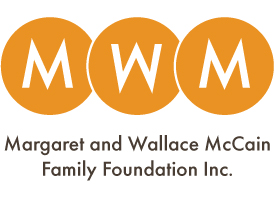The Prosperity Project’s new report, Giving Parents Money Does Not Solve Child Care Problems by Dr. Gordon Cleveland, argues why creating an early learning and child care system advantages families. and the country, more than vouchers for parents.

EXPANDING PUBLIC EDUCATION
Evidence: Economic Arguments

Continuing CWELCC Agreements Wise Economic Decision (2024)

Economic Rationale for Pre-Kindergarten (2023)
Given the considerable economic and social benefits to expanding early learning, and the challenges to creating universal access through licensed care, it is worth highlighting the merits of continuing to expand early learning and child care through the public school system.

Evaluation of Ontario's JK and K Program (2021)
Ontario’s current government has discussed making some drastic changes to Full-Day Kindergarten. Any one of these changes would dramatically alter the current model and significantly damage an already successful program.

ECE as Key Economic Infrastructure (2021)
Investments in early childhood education and childcare can help put Canada on a higher trend economic growth path. A high-quality ELCC program that young children can attend for several years can provide several benefits.

Ready for Life: The Long-Term Outcomes of Quality ECE (2017)
The Conference Board of Canada report Ready for Life: A Socio-Economic Analysis of Early Childhood Education and Care, recommends that governments expand universal access to ECE beginning with full day Kindergarten for four- and five-year-olds and then moving to three-year-olds.

A significant part of the solution to early learning and child care resides in our schools by offering universal pre-kindergarden for 4-year-olds as an extension of public education.
